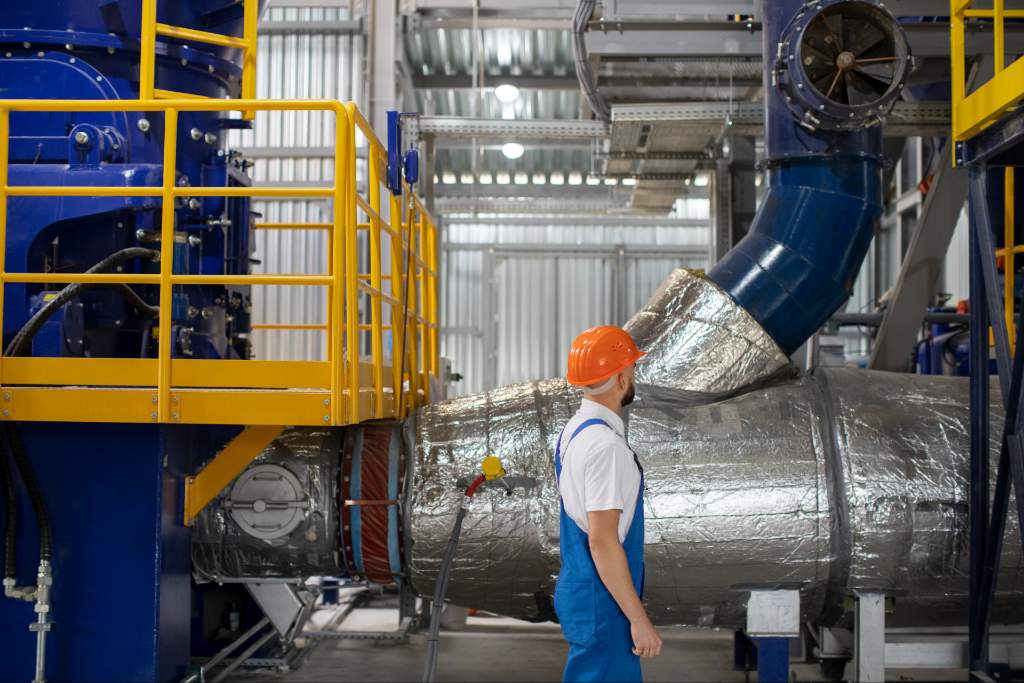Top Thermal Insulation Materials for Industrial Use
When even a few percent of heat loss can significantly increase energy costs and prolong heating cycles, the right thermal insulation material becomes a powerful ally in industrial operations. Insulation helps contain heat where it’s needed, smoothing out temperature control and promoting a safer environment. Choosing materials that match your system’s temperature and exposure means smoother operation and savings that matter.
What Is Thermal Insulation and Why Does It Matter in Industrial Settings
Thermal insulation refers to materials designed to reduce the transfer of heat between surfaces or systems. In industrial operations, this function is critical for controlling temperatures within equipment and piping, ensuring systems run at optimal performance levels.
Effective insulation also lowers energy demands, reduces operating costs, and creates safer environments by limiting surface heat exposure. Beyond efficiency and safety, insulation supports environmental goals, as reduced energy consumption has a direct impact on sustainability efforts.
Best Thermal Insulation Materials for Industrial Applications
Across industries, certain materials stand out for reliable thermal control. These entries from the thermal insulation materials list bring distinct strengths that align with different thermal challenges.
Mineral Wool
Mineral wool delivers excellent resistance to heat and fire while remaining lightweight. Its fibrous structure helps trap air, which improves thermal control and dampens noise. It withstands temperatures exceeding 1,000°C and maintains its structural integrity, making it a dependable choice for furnaces, boilers, and high-temperature equipment environments.
Fiberglass
Fiberglass insulation uses fine glass fibers to offer reliable thermal protection for moderate heat ranges at a competitive cost. It works well on tanks, ducts, and pipes, and remains effective across a broad temperature range, up to approximately 454°C in industrial settings, while offering moisture resistance and ease of installation.
Calcium Silicate
Calcium silicate brings strength and resilience to high-pressure and high-temperature systems. Its rigid form provides thermal insulation with structural support, making it ideal for piping and equipment exposed to intense heat, while working comfortably at temperatures up to 650°C (about 1,200°F). It also resists moisture and maintains performance in demanding conditions.
Ceramic Fiber
Ceramic fiber is made for extreme heat conditions, capable of withstanding temperatures beyond 2,600°F (1,400°C). Its lightweight and flexible nature allows for close-fitting installation in high-heat areas, such as kilns or furnaces, and other equipment exposed to intense heat, where efficient thermal control is essential.
Polyurethane Foam
Rigid polyurethane foam combines very low thermal conductivity with structural resilience. Its closed-cell makeup keeps water out and delivers consistent insulation from chill to warmth. It handles surface temperatures spanning from around –196°C to 148°C, making it a sturdy choice for insulated pipes and storage environments.
What to Consider When Choosing Thermal Insulation Materials for Industrial Use
Choosing an insulation material is about matching its behavior to the demands of industrial environments. Good choices strike a balance between performance, durability, efficiency, and installation practicality.
- Operating Temperature Range: Insulation should operate smoothly at typical system temperatures, not just peak extremes. Ensuring stable thermal performance within that range extends service life and reliability.
- Moisture and Chemical Resistance: A material’s ability to resist moisture and chemical exposure protects its insulating value over time. This resilience prevents degradation and helps maintain consistent performance in damp or harsh settings.
- Durability and Maintenance Requirements: Insulation should remain intact throughout wear and routine maintenance cycles. Durable materials help reduce replacements and downtime, delivering better long-term results.
- Installation and Cost Efficiency: Ease of installation and upfront cost influence overall value. Choosing materials that offer a balance of performance, lifecycle cost, and installation practicality leads to smarter investments.
Secure Optimal Thermal Performance with Smartech
Matching insulation to real-world operating demands brings smoother control, safer surfaces, and better value over time. Having a clear understanding of each thermal insulation material’s strengths guides decisions that support uptime and energy control.
At Smartech, we offer a range of Thermal Insulation Solutions designed to address these challenges, built with consistent quality and durable performance in mind. Whether systems face extreme heat, fluctuating moisture, or routine wear, these solutions deliver the reliability and control needed for high-standard operations.
Contact us to discover how our insulation solutions align with your specific needs and objectives.

Looking for More Information?
Check out our Resources or Contact Us
